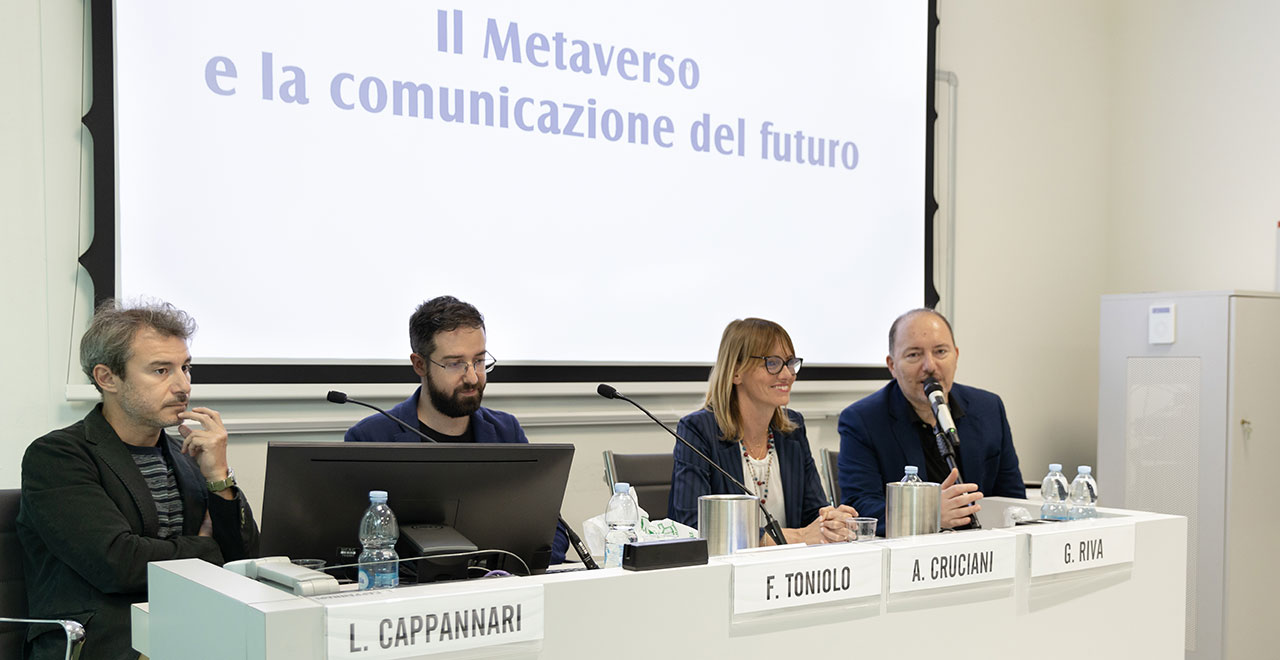
Article by Francesco Berlucchi
There is only one place where, almost simultaneously, it is possible to learn how to weld metal safely, interview the first ballet dancer from La Scala Theater, and design a yacht equipped with a suite, wellness area, and helipad for a helicopter. It is the Metaverse, and not surprisingly, businesses continue to show great interest in this new world, especially in retail and entertainment. «There are three major groups of applications of the Metaverse in the corporate world,» CEO & Co-Founder AnotheReality Lorenzo Cappannari says. His is a three-dimensional software development company whose expertise is derived from the world of video games, which focuses on developing virtual worlds accessible from different devices. «Prototyping is the first of these functions. Think of a dream yacht: you design it entirely through artificial intelligence today. Then there is the employee experience, whose most discussed use case is collaboration in virtual spaces. Finally, the use case most experienced by large companies is training, for example, to train managers and employees' soft and hard skills.» Thus, Cappannari explains, a Spanish company has become a world leader in producing virtual reality simulators for welders: «A niche, but one that facilitates a trade in high demand in the metal industry today.»
After delving into the new scenarios of work and the prospects of training in the Metaverse, the third chapter of the series of events promoted by the Humane Technology Lab turns to the relationship between the Metaverse and the communication of the future. This is a crucial topic when «a revolution is underway, with aspects that are not predictable,» as former Prime Minister Romano Prodi said at a recent event sponsored by the Lab directed by Giuseppe Riva. «I have learned a lot by listening to the guests that Professor Riva has involved in this project,» journalist for Corriere della Sera Alessia Cruciani commented. «I read, in an OECD research, that 86 percent of Italians between 18 and 75 years old who use the Internet have heard of Metaverse, but of these, only 8 percent can explain what it is. According to the same source, using it would be 1.4 million people in Italy, mostly for gaming.»
«We often hear that globally the world of video games weighs more than cinema and music together,» Francesco Toniolo, professor of Forms and Genres of Cinema and Audiovisual at Università Cattolica, explains. «It is clear that a number of new sectors are constantly opening up within the medium that is ludic video. To give an example: a short time ago, Ivan Venturi, a historical Italian video game developer, said he thinks that in no more than ten years, there will be a boom in video games for older people. The boundaries of the Metaverse today seem blurred, but the boundaries of gamification are not so defined either. Yet the latter represents a successful concept, a fortunate insight in the marketing perspective.»
«At Corriere della Sera, we were probably the first to do interviews in the Metaverse,» Cruciani adds. «The first time I interviewed Roberto Bolle: without legs (3D reconstructions did not take people's legs into account, ed.), we thought he would not accept. That's the last straw for the étoile of La Scala. Instead, he had a great time. Then a colleague interviewed Diletta Leotta: the virtual soccer field was filled with male avatars.»
«Conceptually, the Metaverse is a three-dimensional, immersive Internet that is not yet there,» Cappannari continues. «A well-known expert, Matthew Ball, defines the Metaverse as a vision of the future. It is basically what Mark Zuckerberg had in mind when he presented Meta in 2021. Most interesting, however, is the Metaverse that is there. Two interpretations are worth mentioning. The industry is the first: we bring in professionals not previously identified by a label under Metaverse today. I find myself in it a lot, and like me, three-dimensional digital artists, those who create digital twins and produce virtual reality viewers. The formalization of the Metaverse industry has helped try to explain to my mom what I do (smiles, ed.). The second interpretation is the Metaverse experience, which straddles the line between a real-time social network and an engagement and entertainment experience: it is an experience that started as a video game, but today 90 percent of Generation Z (those born between 1997 and 2012, ed) are inside a video game not just to play but to socialize with the community. Kind of like when my generation went bowling even though they didn't want to know about bowling. It was the place of socializing that attracted us.» And that is why the Metaverse struck.